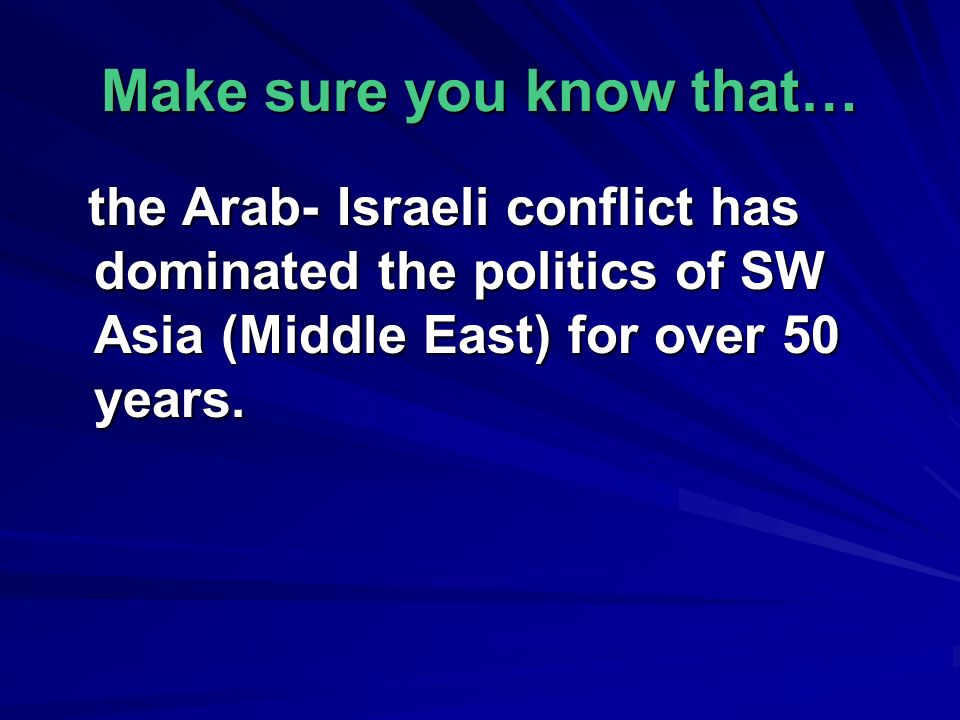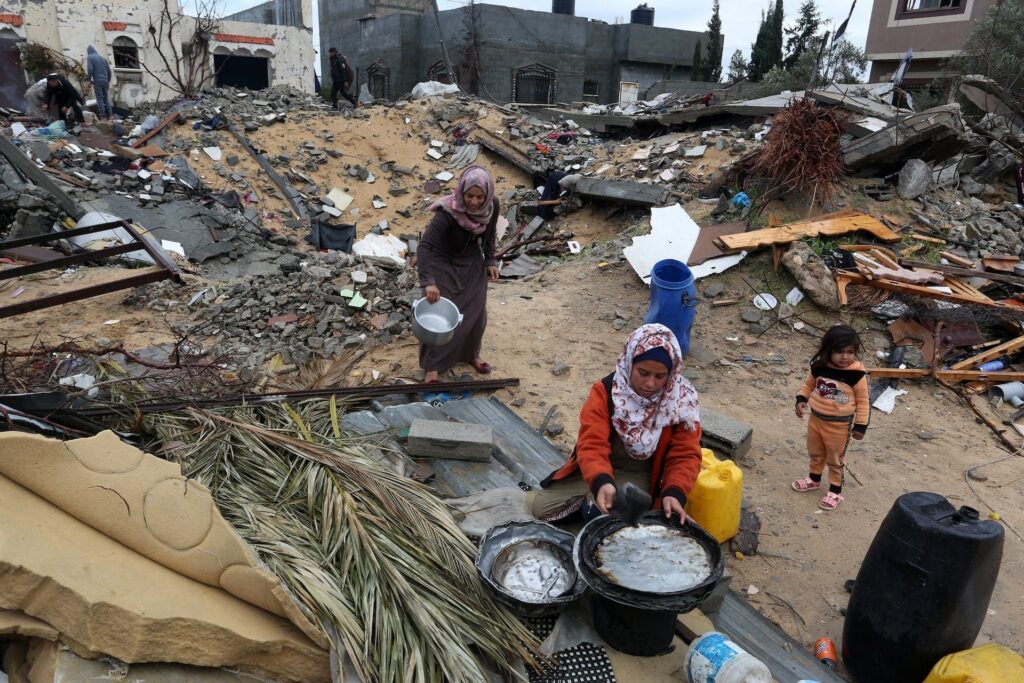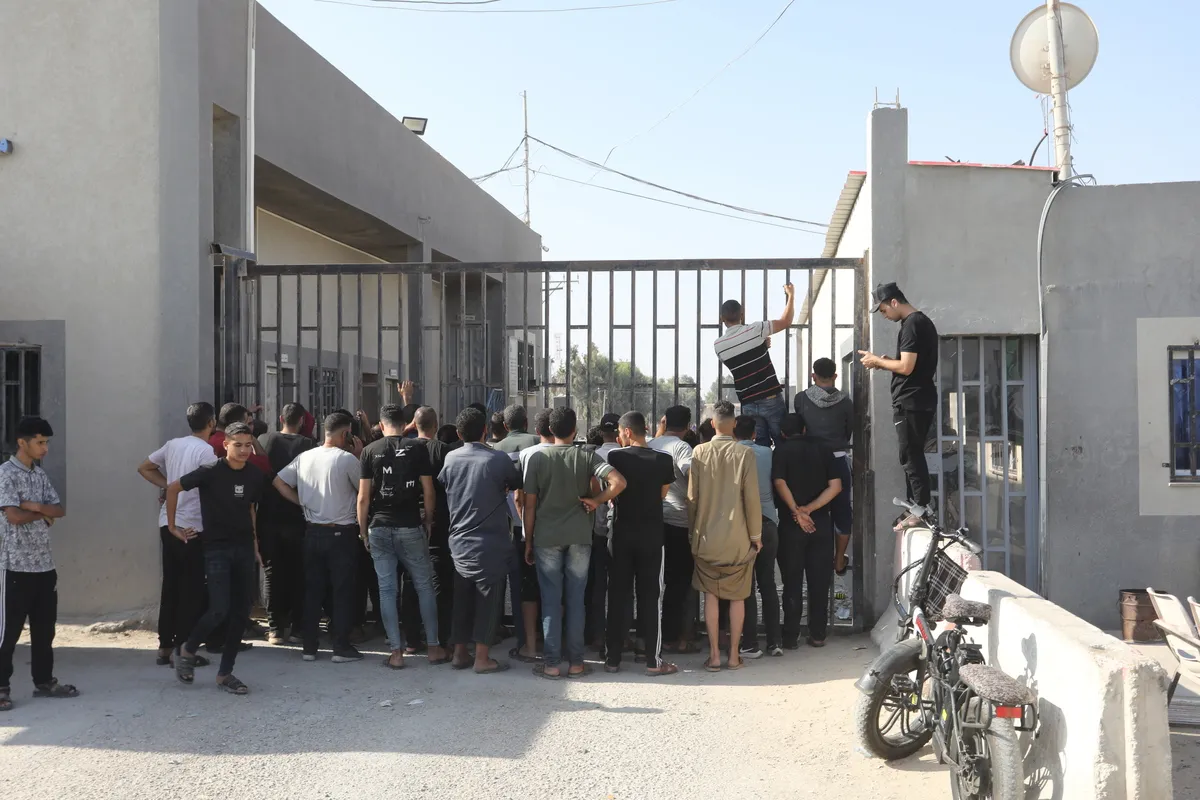The Israel-Hamas War has profound economic implications that extend beyond the immediate conflict zone, impacting global markets in multifaceted ways. This article delves into the intricate relationship between the ongoing conflict and its economic repercussions, exploring various dimensions such as local economic conditions, employment trends, infrastructure damage, and broader market dynamics.
Introduction to Economic Impacts
The Israel-Hamas War, marked by its intensifying violence and geopolitical tensions, significantly affected local and global economies. Understanding the economic impacts is crucial for policymakers, investors, and stakeholders who are trying to navigate the complexities of an evolving geopolitical landscape. The conflict has not only led to humanitarian crises but has also reshaped market perceptions, influencing investment decisions and economic strategies across various sectors.

Local Economic Consequences in Gaza and Israel
The economic consequences of the Israel-Hamas War are particularly severe in the Gaza Strip, where ongoing military operations have led to widespread devastation. The Palestinian economy has been crippled, with essential services disrupted and businesses forced to close. This turmoil has resulted in a staggering unemployment rate exceeding 50%, pushing a significant portion of the population into poverty. In Israel, while the economy remains more robust, the war has strained resources, increased defense spending, and led to economic uncertainty, affecting consumer confidence and domestic investments.

Effects on Employment and Job Markets
One of the most immediate impacts of the Israel-Hamas War is the turmoil in employment and job markets. The war has precipitated significant job losses, particularly in the Palestinian territories, where infrastructure destruction and business closures have left many without livelihoods. Estimates indicate that over 500,000 jobs have been lost, exacerbating an already dire unemployment crisis. In Israel, sectors such as tourism and hospitality have experienced downturns due to safety concerns, leading to layoffs and reduced working hours. This situation underlines the broader economic instability caused by the ongoing conflict, as businesses struggle to maintain operations amid escalating tensions.

Infrastructure Damage and Recovery Challenges
The infrastructure damage resulting from the Israel-Hamas War has far-reaching economic implications. In Gaza, essential facilities such as hospitals, schools, and transportation networks have been severely affected, leading to increased recovery costs and prolonged economic stagnation. The destruction of physical assets not only hampers immediate relief efforts but also poses long-term challenges for economic development. The lack of infrastructure investment can deter foreign investment and slow the recovery process, further entrenching poverty and limiting access to essential services for the population. For Israel, while infrastructure has not been as severely impacted, the need for increased defense spending can divert resources away from other critical areas such as education and health care.

Global Oil Market Dynamics
The Global Oil Market Dynamics have been significantly influenced by the Israel-Hamas War. As tensions rise, fears of supply disruptions lead to volatility in oil prices. The Middle East is a crucial player in the global oil market, and conflicts in this region often result in immediate spikes in crude oil prices due to perceived risks associated with supply stability. Additionally, the war’s impact on energy markets extends beyond oil, influencing natural gas prices and alternative energy investments. Countries reliant on Middle Eastern oil may face increased costs, potentially leading to inflationary pressures in their domestic economies.
Impact on Energy Supply Chains
The ongoing conflict has prompted concerns about the impact on energy supply chains. As hostilities escalate, logistics and transportation networks are disrupted, affecting the movement of goods, including energy resources. Countries that depend on oil imports from the Middle East may encounter delays and increased costs, further exacerbating existing inflationary pressures. The war also influences energy policy discussions globally, prompting some countries to seek alternatives to Middle Eastern oil, thereby reshaping future energy landscapes and investment strategies.
Geopolitical Tensions and Market Reactions
Geopolitical tensions stemming from the Israel-Hamas War have instigated cautious reactions in global markets. Investors often exhibit risk aversion in times of geopolitical instability, leading to fluctuations in stock prices and shifts in investment strategies. Increased uncertainty can prompt capital flight from emerging markets, adversely impacting foreign direct investment (FDI) in regions perceived as risky. This phenomenon illustrates the interconnectedness of global markets, where local conflicts can trigger widespread economic ramifications.
Inflationary Pressures and Central Bank Responses
The conflict has contributed to inflationary pressures in both regional and global economies. Rising oil prices, coupled with increased defense spending, can lead to higher consumer prices and dampened purchasing power. Central banks may respond to these inflationary trends by adjusting interest rates, but navigating the complexities of global inflation in the context of a regional conflict poses significant challenges. Policymakers must balance stimulating economic growth with controlling inflation, often resulting in difficult trade-offs.
Aid and Humanitarian Efforts
Amid the ongoing conflict, international aid and humanitarian efforts have become crucial for alleviating the economic distress faced by affected populations. Governments and organizations are stepping in to provide financial assistance, food, and medical supplies to those impacted by the Israel-Hamas War. However, the effectiveness of aid is often hampered by ongoing violence, logistical challenges, and political considerations. This situation raises questions about the sustainability of humanitarian efforts and the long-term economic prospects for the affected regions.
Long-term Economic Projections
Looking ahead, the long-term economic projections for both Israel and Palestine are fraught with uncertainty due to the protracted nature of the conflict. Economists warn that without a sustainable resolution, both economies may struggle to recover fully. While Israel may benefit from technological advancements and global partnerships, the Palestinian territories face significant barriers to growth, including ongoing political instability and infrastructural deficits. Projections must take into account potential changes in regional dynamics, international relations, and the broader implications for global markets.
Global Economic Growth Projections
The Global Economic Growth Projections are heavily influenced by geopolitical events, including the Israel-Hamas War. As tensions escalate, economists anticipate a slowdown in global growth, particularly in regions closely tied to the conflict. Factors such as increased oil prices disrupted trade routes, and heightened uncertainty can dampen investor sentiment, leading to lower economic activity across various sectors. Understanding these dynamics is crucial for businesses and policymakers seeking to mitigate risks associated with geopolitical tensions.
Conclusion and Policy Recommendations
In conclusion, the economic impacts of the Israel-Hamas War extend beyond immediate humanitarian concerns, affecting global markets in various ways. To address these challenges, policymakers must prioritize diplomatic efforts aimed at conflict resolution while also implementing strategies to bolster economic resilience in the affected regions. Recommendations may include investing in infrastructure rebuilding, enhancing economic cooperation, and ensuring that humanitarian aid reaches those in need effectively. By addressing the root causes of conflict and fostering economic stability, the international community can help pave the way for a more secure and prosperous future.






2 thoughts on “Economic Impacts of the Israel-Hamas War on Global Markets”
Comments are closed.